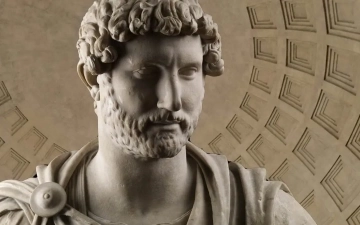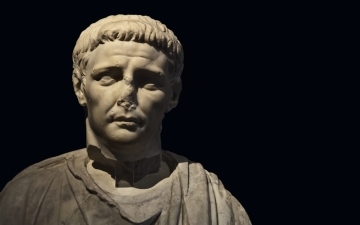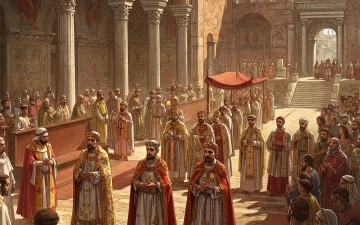Privacy Policy
This Privacy Policy outlines how RomanEmperors.com collects, uses, maintains, and protects your personal information when you visit our website. We are committed to safeguarding your privacy and ensuring that your data is handled responsibly. By using our website, you consent to the practices described in this policy.
1. Information We Collect:
- Personal Information: We may collect personal information such as your name and email address when you voluntarily provide it, for example, when subscribing to our newsletter or contacting us.
- Non-Personal Information: We may also collect non-personal information, including browser type, operating system, and IP address, to enhance user experience and improve our website.
2. How We Use Your Information:
We use the information collected for the following purposes:
- To personalize your experience on our website.
- To send periodic emails with updates, news, and related information.
- To respond to your inquiries and provide customer support.
3. Data Protection:
We implement industry-standard security measures to protect your personal information from unauthorized access, alteration, disclosure, or destruction.
4. Third-Party Websites:
Our website may contain links to third-party websites. We are not responsible for the privacy practices or content of these external sites. Please review their respective privacy policies.
5. Cookies:
RomanEmperors.com may use cookies to enhance your browsing experience. You can choose to disable cookies through your browser settings, although this may affect some website features.
6. Children's Privacy:
Our website is not directed at children under the age of 13. We do not knowingly collect personal information from children. If you believe a child has provided us with their personal information, please contact us, and we will take appropriate action to delete such information.
7. Changes to this Privacy Policy:
RomanEmperors.com reserves the right to update or modify this Privacy Policy at any time. Any changes will be posted on this page, and the date of the last update will be revised accordingly.
8. Contact Us:
If you have any questions or concerns about our Privacy Policy, please contact us at info@bible-history.com
By using RomanEmperors.com, you agree to the terms outlined in this Privacy Policy. Your continued use of our website signifies your acceptance of these terms. Thank you for entrusting us with your privacy, and we are committed to maintaining the confidentiality and security of your information.
Related Posts
Digital Assets and the Holy See: How the Vatican is Adopting Blockchain & Crypto Technology and NFTs
Introduction The Vatican has started experimenting with blockchains and non-fungible tokens (NFTs) technology integration around the world to engage new audiences and culturally patrimonial preservation of Ancient Greece and Rome. This initiative, which began with the Vatican Apostolic Library and NTT DATA Italia, is one of the first on Web3 attempts...
Read MoreHadrian: Building Walls and Bridges in Ancient Rome
In the annals of Roman history, Emperor Hadrian stands out as a multifaceted ruler known for his significant architectural projects, military achievements, and contributions to the empire's cultural development. His reign, from 117 to 138 CE, was marked by a commitment to both defending and connecting the vast Roman territories....
Read MoreBonsai Trees: The Art, Care, and Beauty of Miniature Trees
Bonsai trees are more than just plants—they are living works of art, shaped and nurtured over time to reflect nature’s beauty in miniature form. Originating from ancient Asian traditions, bonsai trees symbolize harmony, patience, and balance, making them a meaningful and meditative hobby for plant lovers worldwide. Whether you're a...
Read MoreLiving Smarter in 2025: A Holistic Guide to Thriving in the Modern World
As we advance further into the digital age, life in 2025 is defined by a seamless fusion of technology, tradition, and personal growth. From AI-powered finance to deeply rooted spiritual customs, from smart home living to innovative educational tools, people today are reimagining how to live, work, worship, and grow. This...
Read MoreClaudius: The Unexpected Emperor and His Surprising Achievements
In the annals of Roman history, the name Claudius stands out as a remarkable story of an unexpected emperor who defied the odds and left behind a legacy of significant achievements. Often underestimated due to physical disabilities, Claudius rose to power and proved to be a capable and innovative ruler....
Read MoreRoman Emperors and the Importance of the Catholic Jubilee of 2025
Throughout history, Roman emperors have played a crucial role in shaping the world, particularly in their influence over politics, religion, and culture. Their legacy continues to resonate today, especially in the traditions of the Catholic Church. One such tradition is the Catholic Jubilee, a sacred year of forgiveness, renewal, and...
Read More






















